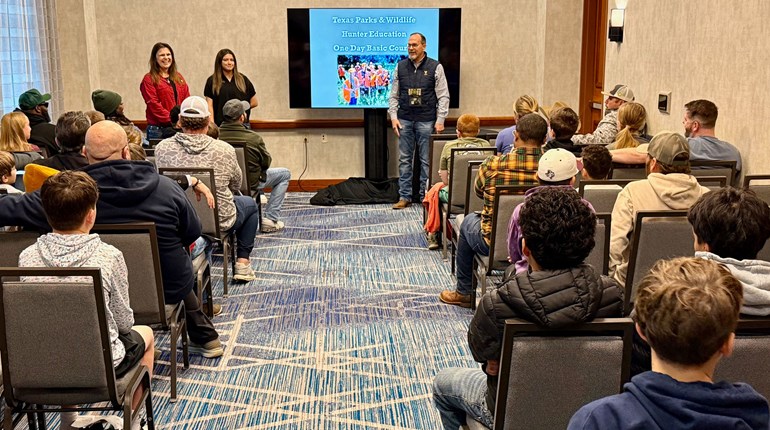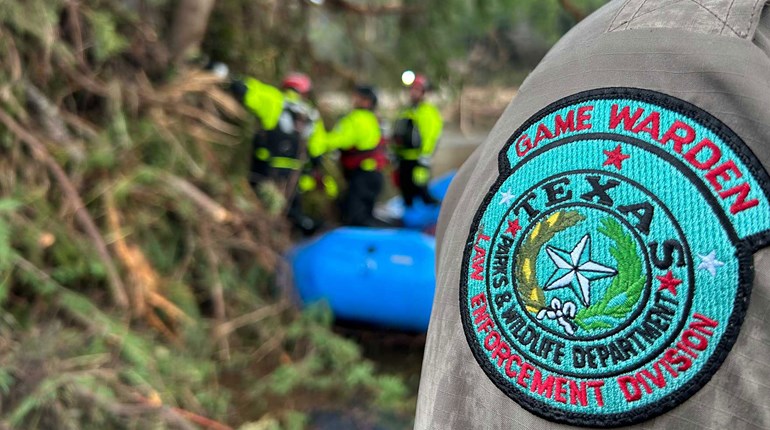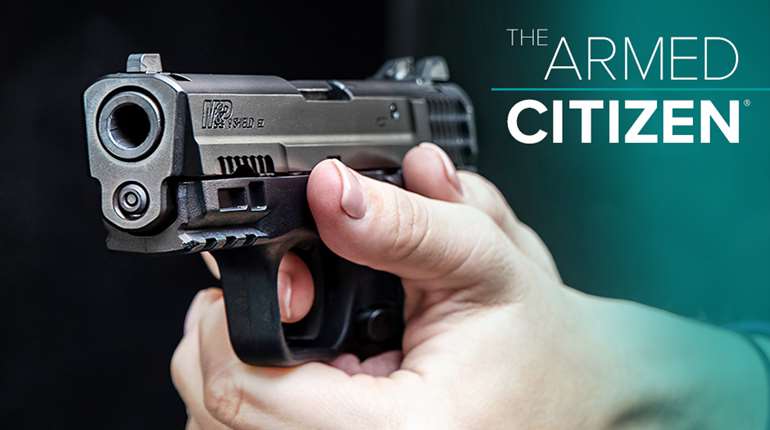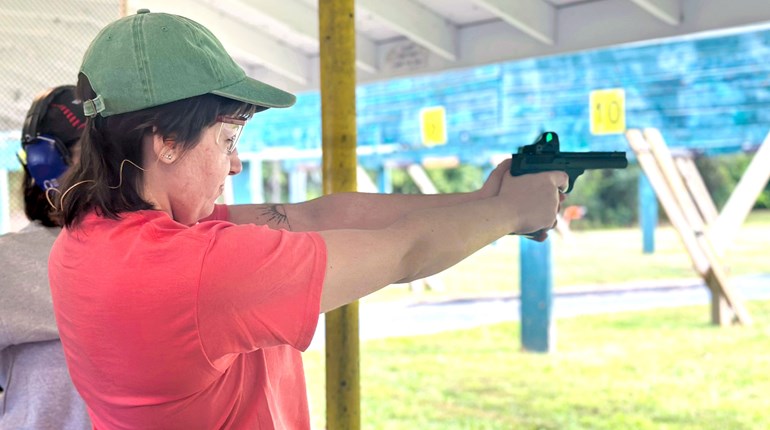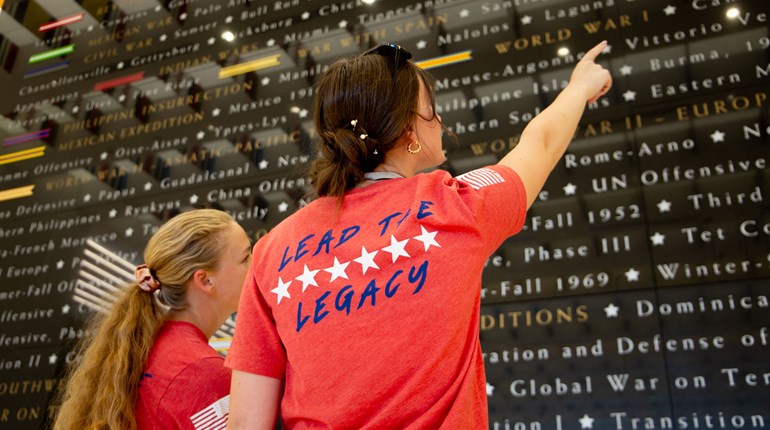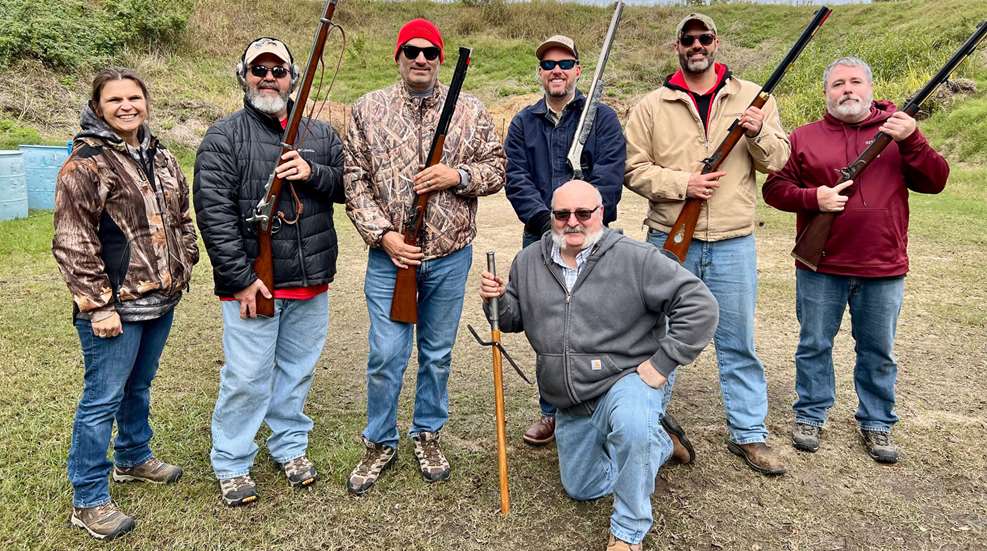
When you visit a gun range, one thing you will notice is there usually is no shortage of firearms instructors. There may be business cards on the counter, advertisements on a pin-up board, or recommendations from the range personnel. This means that if you are a firearms instructor looking for students, you must set yourself apart.
Growing up, we all had good teachers and bad teachers as well as good professors and bad professors. This does not mean that bad teachers and bad professors did not know the topic. It only means that they may not have been good at their job.
You can be the best shot in the world and the most knowledgeable gun resource around, but if you cannot effectively convey the message and techniques, your students will suffer. Beyond being a knowledgeable and skilled shooter, a firearms instructor should have personal traits that set them apart. These include being humble, listening, being inquisitive, and being happy.
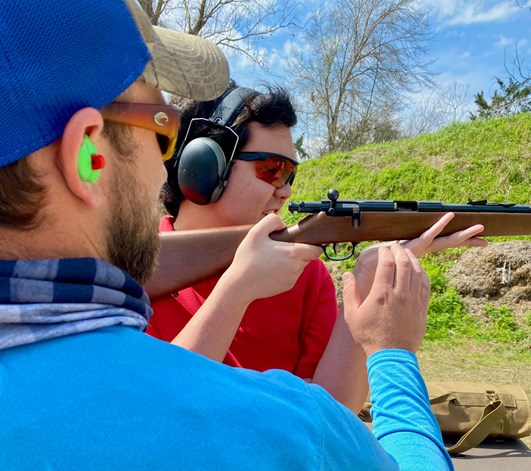
Humility
A humble instructor is a likeable instructor. If your students do not like you, they will have no respect for you. If they have no respect for you, they will put up a “wall” and not learn what you are trying to communicate. Being humble makes you approachable and relatable to your students.
Unfortunately, there are firearms instructors who are the opposite of humble, even downright egotistical. These instructors are the type that believe, “if you do not agree with me, you are wrong.” They fail to understand that everyone is built differently and as a result, we all shoot differently. Of course, as instructors, we teach the proper fundamentals of shooting. This is where we begin.
By recognizing that we are all built differently, we all come from different backgrounds, and have different handicaps, instructors can safely modify the basic shooting fundamentals. For example, in the NRA Basic Pistol Course, we teach the isosceles shooting position. Sometimes we have older or heavy-set individuals in class and they have a difficult time getting into the isosceles position because it may be too difficult or uncomfortable. By having this student slide his or her foot opposite the shooting hand slightly forward in a modified weaver position, he or she becomes more comfortable and balanced. This results in a higher success rate for them on target.
A humble instructor also does not think he or she knows everything regarding firearms. The humble instructor realizes there is always more to learn about their field of expertise. A good instructor continually increases their knowledge of firearms and always strives to improve their teaching. This can be done by research, keeping up with the new trends in firearms, and most importantly, listening to your students.
Listening
A good instructor listens to his or her students. If an instructor checks his or her ego at the door, they might be surprised at what they learn by listening to their students. By listening to different points of view and thought processes regarding a particular subject, the instructor can put himself or herself into the unique perspective of their students. This may help the instructor through self-evaluation. In other words, the instructor might identify a problem with his or her delivery method. For example, by listening to your students, you, the instructor, may be using confusing wording and need to change your delivery of information on a particular subject.
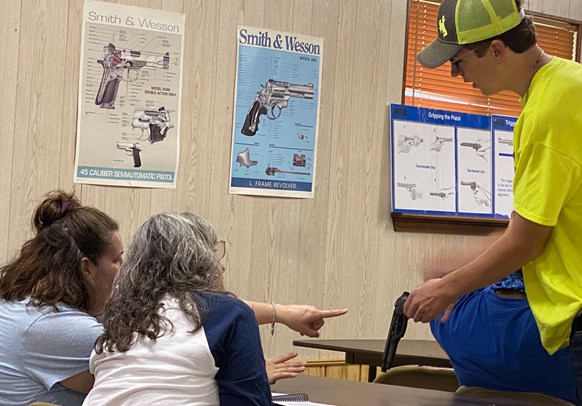
One of the biggest complaints I hear from students who have previously trained with other instructors is they thought they knew everything and if you did not agree with them, you were wrong. As an instructor, if you think you know everything, you are wrong. Nobody wants to attend a firearms class where they are constantly being told they are wrong.
A good instructor does not outright tell their students they are wrong, they convince them. This is done by acknowledging that their way may be working for them, but that there may be other more effective methods. When you introduce the proper way of executing the fundamentals of shooting, your student’s marksmanship should improve. You have now taught your student the proper way of shooting while not being negative or insulting regarding the way they were shooting. Always direct your student to perform the correct technique by involving them in the shooting process, not by describing their incorrect actions. This builds confidence in your students.
By having good listening skills, a good instructor is not only an instructor, but also a student. I teach NRA classes every weekend and I try to make my classes better each time I teach. According to the NRA Instructor Courses, “Instructors need to strive for constant improvement in their organizational and teaching skills.” I try to learn something from every class I teach. I sometimes see my students do or say something in the “teach-backs” during the instructor courses that may be better than the way I did it. I then incorporate that in my future classes to improve my teaching skills.
Inquisitive
A good instructor is inquisitive. In other words, he or she asks questions. This is done for two reasons. First, it increases the instructor’s knowledge. No matter how much experience we think we have, we can always learn something new from our students. A good instructor must realize that they do not know everything, and their students can be a great source of information.
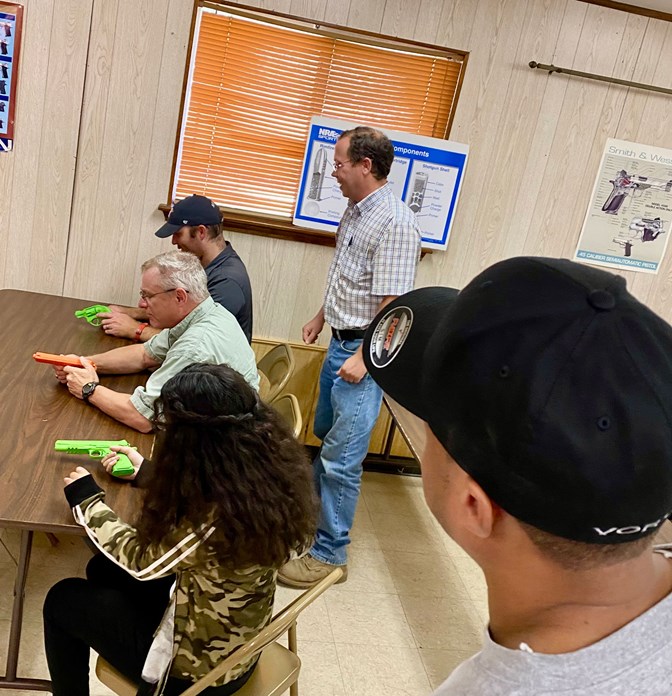
A second reason that a good instructor should ask questions is to facilitate class discussions. I call this “lobbing a hand-grenade” in class. I think of “emotional” or “hot” topics that cause my students to think and initiate a debate. For example, I might say something like, “9 mm pistols are not as good as a .45 ACP for self-defense.” This does not mean that I believe in this statement or not, but it gets my students ready for debates, questions and conversations that might come up in their future classes.
In every NRA Instructor firearm class, the NRA teaches that every instructor should ask thought-provoking questions for “Total Participant Involvement (TPI)” and to encourage classroom discussions. According to the NRA Training Department, asking questions causes people to think, stimulates discussions, arouses curiosity, evaluates understanding, focuses attention, guides students to solve problems, and keeps students on the topic. Asking questions is a valuable training tool that every instructor should use.
Happy
A good instructor should be a happy instructor! This a trait that many instructors forget, especially over time when their classes become “routine.” First, there is no such thing as a routine class. Each class is different with diverse students from all walks of life and experiences. Students retain more information if the instructor is happy and makes the class fun.
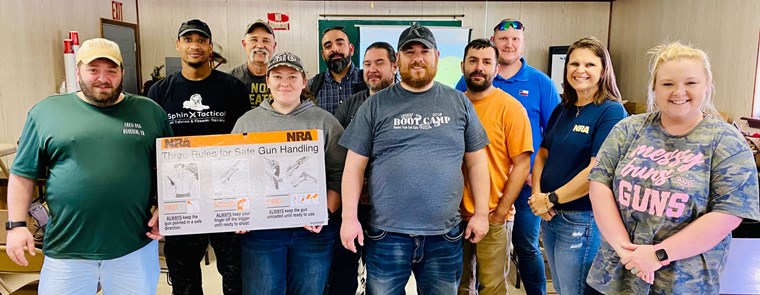
An unhappy instructor makes for an unhappy class. I often hear this from students who complain about previous firearms classes they have attended. Their chief criticism is that they felt that their instructor really did not care if they learned something or not, and they were just “in it for the money.” In other words, these students felt cheated. No one likes to be cheated or taken for granted.
Every NRA Certified Instructor should be a happy instructor. This is especially true because we are “ambassadors” for the NRA. We are frequently in contact with the public when teaching classes and should always be presenting a positive image and demeanor. There is another reason why a good instructor is a happy instructor. These instructors usually get repeat business and referrals. Being happy benefits your students and your firearms training business.
If you are a firearms instructor, especially an NRA Instructor, you have a duty to try to constantly improve your training sessions. There is more to training than just being knowledgeable about the firearms or topic you are teaching. You must create a safe and quality learning experience.
A good instructor should be part of the class, not dominate the class. In other words, an instructor should be both teacher and student. An NRA Certified Instructor should be humble, be able to listen, ask questions, and above all, be happy. So next time you teach a class, remember to put on your smile and make it a memorable experience!












